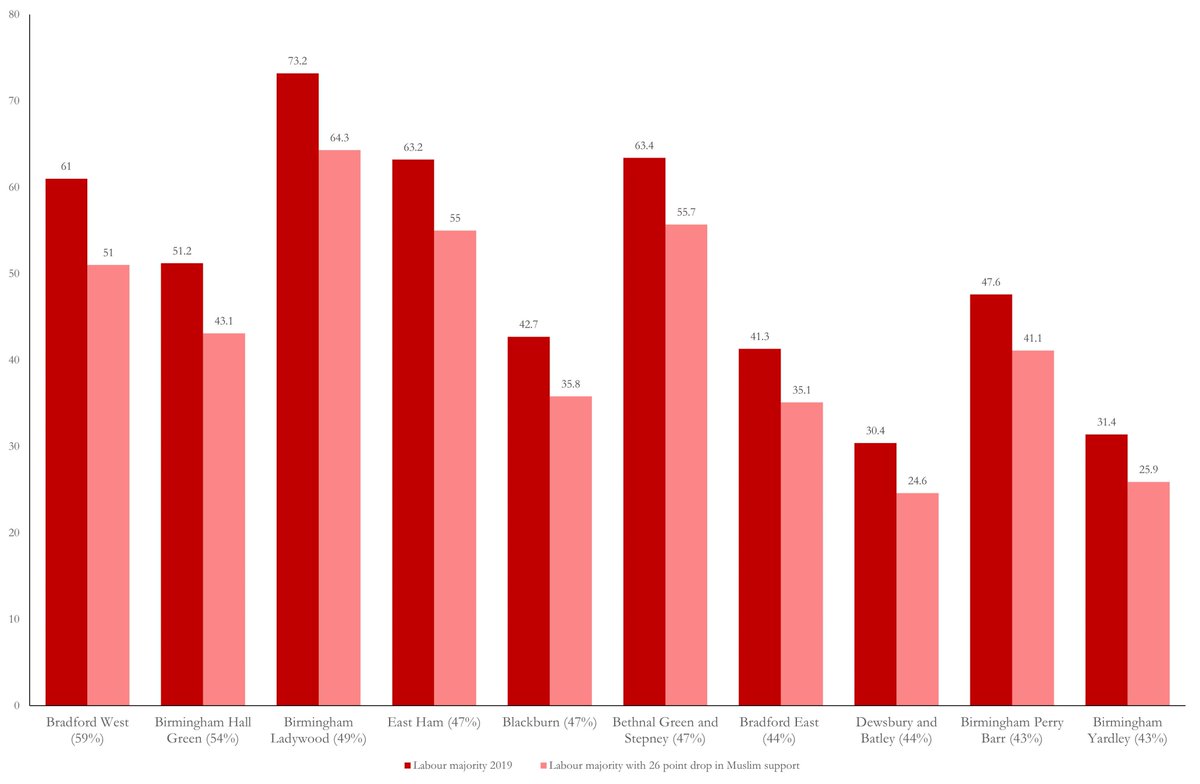Have been pondering over a theory about Johnson's behaviour. Tl;dr - it could possibly represent a better recongition of the realities of the current Commons and may even offer one of the few routes to winning a Commons majority for (some kind of) deal
The basic Commons prob since June 2017: There is a majority *against* no deal (in theory), and there is a majority for (any) dal over no deal in a binary choice, but there is never a majority for any deal over no deal provided a third option exists: delay
Any Conservative PM seeking Brexit faces the same basic problem:
1. Enough MPs on their own benches will vote against any actually achieable deal (ERG "Spartans" and often DUP too)
2. Therefore any achievable deal must find votes elsewhere...
1. Enough MPs on their own benches will vote against any actually achieable deal (ERG "Spartans" and often DUP too)
2. Therefore any achievable deal must find votes elsewhere...
3. The only feasible source of such votes is Labour MPs who for various reasons either want Brexit in principle, or would vote for a deal to prevent no deal. The only route to a majority for *any* deal in this Commons runs through the Labour backbences
4. 4. But Lab MPs won't vote for Con Brexit (because partisanship) so long as the "St Augustine" option - "Oh Lord, let us Leave, but not yet". No Lab MP wants to enable a "Tory Brexit". Provided they feel some mechanism exists to stop no deal, they won't vote for it
5. Theresa May's experiences from last summer onwards tested this thesis to destruction. No achievable iteration of her deal could get a majority on her benches. No offers or maneuvres could win Lab votes provided delay was a credible alternative
6. So, if you are the new PM, having watched the old one crash on these rocks, the logical thing to do is to try and squeeze the rebellion on yr own side while also forcing Brexit-leaning Lab MPs to see the choice before them as binary: "this deal or no deal"
7. A lot of Johnson's behaviour since the summer would fit with this. First all the "do or die" rhetoric and aggressive symbolic moves to try and win the trust of as many Brexiteer/ERG types as possible
8. Now the move to squeeze the Commons calender as much as possible to try and force a show down with the "stop Brexit" alliance. Aggression & surprise help because, as the evidence of the last yr has already shown, the stop Brexit gang are not good at moving quickly or nimbly
9. Now the impossible triangle (Deal, No, Deal, Delay) gets made into a series of more easily winnable binaries. The first will be a confidence fight in the next couple of weeks. If Johnson wins it, he then gets to bring whatever deal he cobbles together to Commons in mid-Oct
10. At that point, he can turn to Labour's St Augustines and say "time's up". With no feasible option left to delay or prevent Brexit, they will be forced into a binary deal or no deal choice and will take "deal" over "no deal". Pick your poison.
11. Of course, this is just one of the branches of possible history beloved of Dominic Cummins. But the outcomes may not look too bad to the PM and his advisors going down the other branches.
12. If the govt is brought down in the next week or two, Johnson can go to the public with a "people vs Parliament" election. An ugly populist campaign will follow, but its theoretically favourable terrain if it enables a squeeze on the Brexit vote
13. If the govt loses control of the calender, they will have laid down a marker to everyone that they intend to pursue every possible mechanism to frustrate MPs seeking to prevent no deal through delay. That will buy them goodwill from ERG types
14. If they win on confidence and the calender, but Lab St Augustines still balk at backing a Johnson deal, then Britain leaves with no deal and Johnson, Cummins et al will seek to blame Lab MPs in Leave seats for the consequences.
15. So, tl;dr - Johnson may appreciate the maths better than May. The maths requires Lab votes. And that means forcing Lab MPs to see the choice as "deal or no deal". This may be a ruthless effort at winnowing the choices on offer. It might even work /ends/
(PS none of this means there aren't *huge* problems with this behaviour from the perspective of democratic and constitutional norms of behaviour etc, just an effort to think through what advantages, if any, the current aggressive moves might bring)
(PPS This is all just a theory about the domestic side and thus premised on some rather big assumptions about negotiations with the EU yielding something Johnson can sell at home. But that's another discussion, and the thread was already v long!)
• • •
Missing some Tweet in this thread? You can try to
force a refresh






